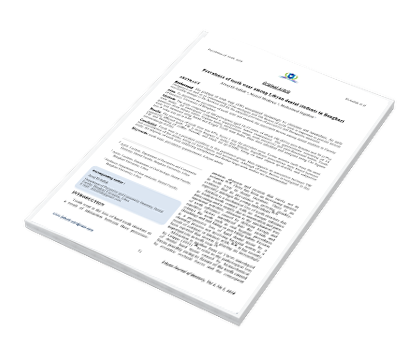Prevalence of tooth wear among Libyan dental students in Benghazi
DOI:
https://doi.org/10.37376/ljd.v2i2.1837Keywords:
tooth wear, prevalence, questionnaire, Libyan adultsAbstract
Background: The problem of tooth wear (TW) encountered increasingly by clinicians and researchers. An early recognition as well as an understanding of the etiologies and risk factors of tooth wear is important to prevent serious irreversible damage to the dentition and for the adequate provision of preventive and therapeutic measures.
Aims: To determine the prevalence of tooth wear and identify the associated factors among dental students in Faculty of Dentistry, University of Benghazi.
Methods: The study comprised of 300 participants aged 18-27 years, of which 250 (83%) were females and 50 (17%) were males. All participants completed a questionnaire before examination. The questionnaire consisting of 14 questions about dietary habits, hygiene habits, medications usage, tooth sensitivity and para-functional habits. Tooth wear was measured using Smith and Knight Tooth wear Index. Data were tabulated and analyzed using Chi Square test; P value was set at 0.05.
Results: The prevalence of tooth wear was 87%. Score 1 was the prevalent score. Lower anterior teeth were the most commonly affected teeth. TW is more frequent in males than females. Significant associations were found between TW and Drinking of coffee, Nescafe, and black tea (p=0.048), biting on hard objects (p=0.039), and subjective xerostomia (p=0.010).
Conclusion: Tooth wear is a prevalent condition in this population group. Data supports an association between TW and consumption of hot drinks, biting on hard objects, and xerostomia. Although of many factors investigated in this study, the majority of tooth wear remaining unexplained and further large-scale studies are recommended.
Downloads

Downloads
Published
How to Cite
Issue
Section
License
Copyright (c) 2022 Libyan Journal of Dentistry

This work is licensed under a Creative Commons Attribution-NonCommercial-NoDerivatives 4.0 International License.







